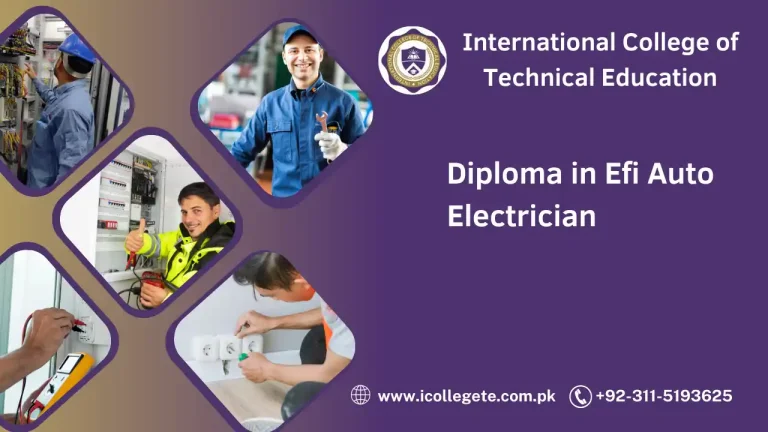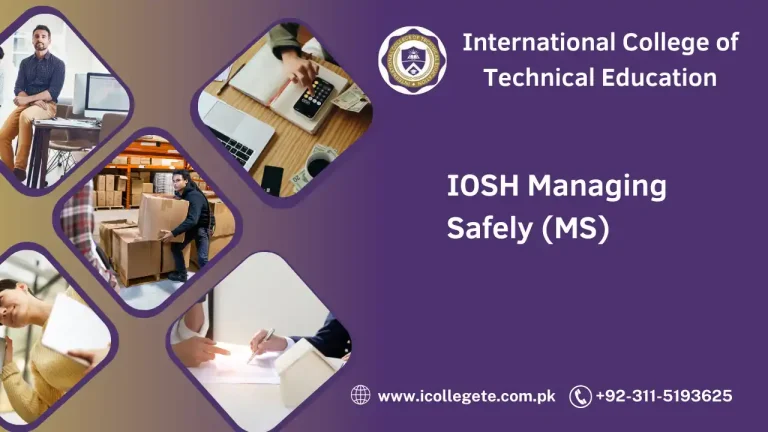In today’s fast-paced world, the demand for air conditioning (AC) systems continues to rise as temperatures soar, and the need for comfortable, temperature-controlled environments becomes essential. As businesses, homes, and industries rely heavily on air conditioning, skilled professionals are needed to install, repair, and maintain these systems. If you’re interested in starting a rewarding career in the heating, ventilation, and air conditioning (HVAC) industry, the AC Technician Course in Sialkot is the perfect starting point.
The AC Technician Course in Sialkot is designed to provide students with the practical skills and theoretical knowledge necessary to become proficient AC technicians. Whether you’re looking to work in residential, commercial, or industrial environments, this course equips you with the tools you need to install, troubleshoot, and repair air conditioning systems effectively.
The course covers everything from basic refrigeration concepts to advanced air conditioning repair techniques, ensuring that students gain a thorough understanding of how AC systems work and how to maintain them efficiently. Upon completion, you’ll be prepared for a successful career in the HVAC industry, whether working independently or as part of a service team.
Course Overview
The AC Technician Course in Sialkot is a hands-on training program that focuses on equipping students with the skills required to service and maintain air conditioning systems. It covers the essential aspects of refrigeration, installation, diagnostics, and repair of air conditioning units, providing students with a comprehensive understanding of the AC technology.
Key Topics Covered:
- Introduction to Air Conditioning and Refrigeration
- Basic Electrical and Mechanical Principles
- AC System Components and Their Functions
- Installation of AC Systems
- Maintenance and Troubleshooting Techniques
- Refrigerant Handling and Safety
- Air Conditioning System Repair
- Advanced Diagnostics and Efficiency Optimization
- Commercial and Industrial AC Systems
- Customer Service and Professionalism in HVAC Work
Study Units
The course is broken down into practical and theoretical units to ensure a well-rounded understanding of air conditioning systems. Here’s an outline of the study units:
1. Introduction to Air Conditioning and Refrigeration
- Overview of air conditioning and refrigeration principles.
- Understanding the role of AC systems in different environments.
- The refrigeration cycle: how it works and its components.
- Differences between cooling systems: air conditioners vs. refrigerators.
2. Basic Electrical and Mechanical Principles
- Electrical principles: circuits, current, voltage, and resistance.
- How electricity powers AC units.
- Mechanical principles: compressors, condensers, evaporators, and fans.
- Understanding the role of motors and switches in an AC system.
3. AC System Components and Their Functions
- Study of various components like compressors, coils, refrigerant, and expansion valves.
- Understanding the function and importance of each component.
- How these components interact to cool and dehumidify the air.
4. Installation of AC Systems
- Step-by-step installation of split, window, and central air conditioning systems.
- Understanding the proper placement of indoor and outdoor units.
- Installing refrigerant lines, electrical connections, and drainage systems.
- How to test the installation and ensure proper functioning.
5. Maintenance and Troubleshooting Techniques
- Routine maintenance tasks such as cleaning filters, checking refrigerant levels, and inspecting electrical connections.
- Diagnosing common issues such as poor cooling, unusual noises, or leakage.
- Troubleshooting techniques for diagnosing and fixing faulty systems.
- How to replace and repair parts like compressors, fans, and motors.
6. Refrigerant Handling and Safety
- Understanding refrigerants and their role in the cooling process.
- Different types of refrigerants: R22, R410A, and their properties.
- Safety protocols for handling refrigerants and preventing leaks.
- Legal regulations and environmental considerations when dealing with refrigerants.
7. Air Conditioning System Repair
- How to repair common AC problems such as refrigerant leaks, faulty thermostats, or compressor issues.
- How to test and replace damaged components.
- Repairing circuit boards, motors, and other electrical parts.
- Best practices for efficient, cost-effective repairs.
8. Advanced Diagnostics and Efficiency Optimization
- Advanced diagnostic techniques for identifying less obvious issues in AC systems.
- How to improve system efficiency and reduce energy consumption.
- Optimizing airflow and cooling efficiency.
- Using tools like pressure gauges and thermometers to check system performance.
9. Commercial and Industrial AC Systems
- Installation and maintenance of larger AC systems used in commercial and industrial environments.
- The difference between residential and industrial AC systems.
- Handling complex systems like central air conditioning units and multi-zone HVAC systems.
- Understanding commercial refrigeration systems and their maintenance.
10. Customer Service and Professionalism in HVAC Work
- How to communicate effectively with clients and provide excellent customer service.
- Understanding the importance of professional behavior in the HVAC industry.
- Tips for managing service calls, quotes, and appointments.
- Building a good reputation as an AC technician.
Learning Outcomes
By the end of the AC Technician Course in Sialkot, students will:
- Have a strong foundation in air conditioning and refrigeration principles.
- Be able to install, maintain, and repair various types of AC systems.
- Understand how to troubleshoot and resolve common AC issues effectively.
- Be proficient in handling refrigerants safely and in compliance with environmental regulations.
- Know how to optimize AC system performance for greater energy efficiency.
- Develop excellent customer service skills and professionalism required in HVAC work.
Course Benefits
Enrolling in the AC Technician Course in Sialkot offers a number of benefits:
- Hands-On Learning: The course provides practical, real-world experience, allowing you to apply what you learn in a controlled environment.
- In-Demand Skill Set: HVAC professionals are in high demand worldwide, especially in regions with extreme temperatures. Completing this course will equip you with the skills needed to enter this thriving industry.
- Job Security: As long as air conditioning systems are in use, AC technicians will always be needed. This ensures a stable career path.
- Higher Earning Potential: Skilled HVAC professionals often earn competitive salaries, with opportunities for overtime pay and bonuses.
- Variety of Work: AC technicians can work in a variety of settings, from residential homes to commercial buildings, and even industrial sites, providing flexibility in your career.
Who is This Course For?
The AC Technician Course in Sialkot is ideal for:
- Aspiring HVAC Technicians: Individuals looking to start a career in the HVAC field, focusing on air conditioning systems.
- Existing Technicians: Those who already work in related fields (like electrical work or plumbing) and want to specialize in AC systems.
- Entrepreneurs: People interested in starting their own AC repair and installation business.
- Students: High school or college students looking to enter a technical field with a solid career outlook.
- Anyone with an Interest in HVAC: Individuals who want to learn more about air conditioning systems for personal or professional reasons.
Future Progression
After completing the AC Technician Course in Sialkot, there are several potential career paths and progression options:
- HVAC Technician: Start working as an AC technician in residential, commercial, or industrial settings.
- AC Installation Specialist: Specialize in the installation of large-scale air conditioning systems, such as central air or industrial AC units.
- HVAC Business Owner: Start your own HVAC business, providing installation, repair, and maintenance services to clients.
- Advanced HVAC Certifications: Pursue advanced certifications in areas like HVAC design, energy efficiency, or system optimization.
- Technician Supervisor: With experience, you can progress to supervisory roles, managing a team of technicians and overseeing larger projects.
- Sales and Consultation: Use your technical expertise to work in HVAC sales or as a consultant for clients who need advice on HVAC system selection and maintenance.
The AC Technician Course in Sialkot is a fantastic opportunity for individuals looking to enter the HVAC industry or expand their existing skills. With hands-on training, a comprehensive curriculum, and a growing demand for skilled AC technicians, this course is your pathway to a successful and stable career.
Enroll today and gain the knowledge and skills you need to become a highly sought-after AC technician in Sialkot and beyond!







